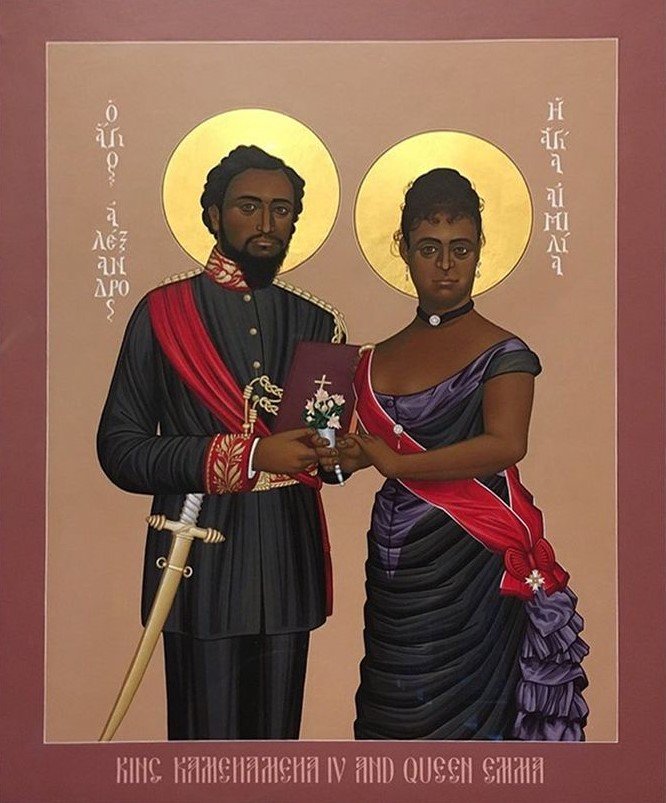At All Saints we make much ado about a relatively little-known feast day which always falls around Thanksgiving: the Feast of the Holy Sovereigns. It is a festival dedicated to the gospel legacy of King Kamehameha IV (Alexander Kalanikualiholiho) and his wife, Queen Emma.
For a far lengthier treatment of the feast and its history I commend to you this essay I wrote for Anglican Compass last year in which I argue that…
“As unheard-of as they may be in the rest of the Anglican world, for those of us in Hawaiʻi, the importance of their role in the Anglican mission here cannot be overexaggerated: they are the ones whose calls for missionary bishops from the church of England was finally answered, who gave from their own wealth for the provision of mission and welfare of souls here in these islands, who walked the streets of Honolulu together raising funds to establish the Queen’s Hospital, and who gave the church in Hawaiʻi a translation of the Book of Common Prayer in ʻōlelo Hawaiʻi.”
I encourage you to go ahead and read that article in its entirety. For now, however, I’ll content myself with a single comment:
A deeply missional impulse calls us to inhabit eternity. We want to avoid forever gazing at a historical golden age of gospel advancement (“oh man, to be a Christian in Hawaii back then”). We also want to avoid an idolatrous futuristic outlook (“once this happens [insert blank] then we’ll truly be [insert blank] and missionally effective”). We want, thirdly, to avoid a social-clubbishness that comes from focusing only on the immediate contexts in which we live (“these are the golden days” or “we’ve arrived”).
The feasts of the Christian year, when observed rightly, serve to draw us into the drama of God’s eternity. We want to live like the penitent Mr. Scrooge in past, present, and future with the Living God who is I AM, and who gathers all things into his fathomless Sabbath.
We carry the inheritance of the Holy Sovereigns from the past into the present, remembering them, allowing their story to shape our missional care here-and-now. And this festal remembrance, as all good festivals do, calls us beyond its present celebration into a future begotten by the conviviality. Feasts demand that we continue to “do this is remembrance.”
Join us this weekend, sundown on what is called “Black Friday”, as we sing songs in English and Hawaiian. As we hear the gospel read in English and Hawaiian. As we sing the Sanctus with angels and archangels and all the company of heaven, and lift-up a thanksgiving for the Holy Sovereigns. But join us also as we allow that story to draw us into itself —as we become partakers of the story of the gospel in these islands which stud the ends of the earth, and as we pray that the glory of the Lord would cover the earth as the waters cover the sea… yes even the swelling Pacific.
Amen. Maranatha. Come Lord Jesus.


